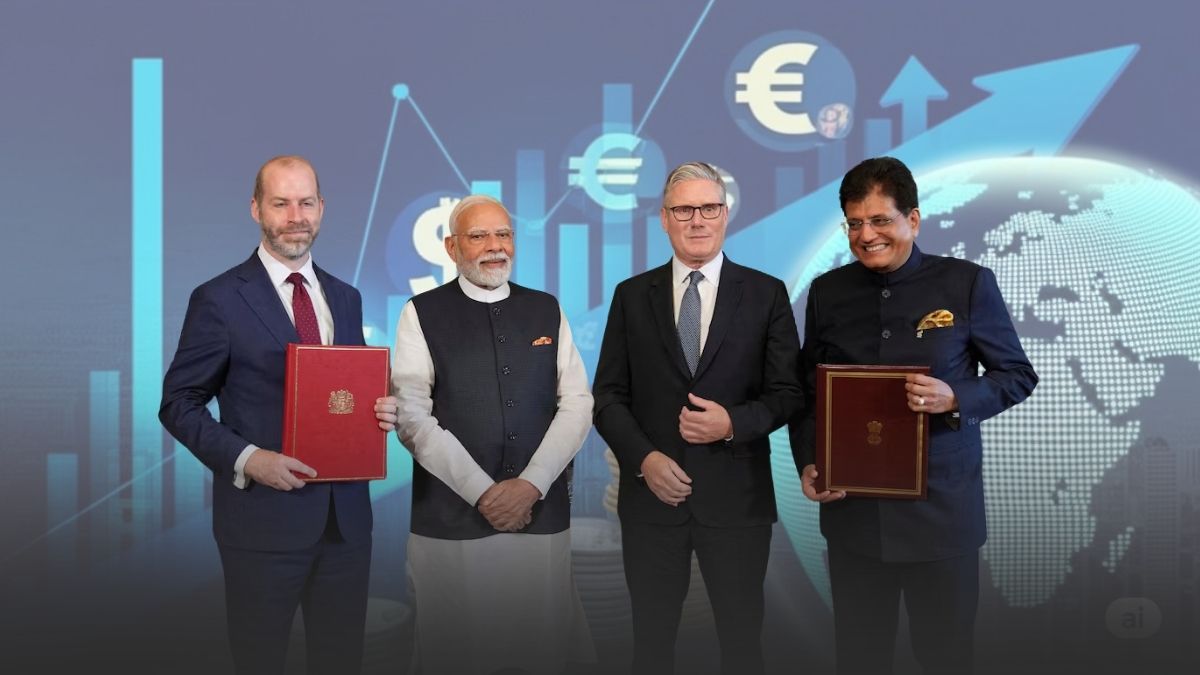On July 24, 2025, India and the United Kingdom signed a landmark Comprehensive Economic and Trade Agreement (CETA), marking a historic milestone in their economic partnership. This ambitious free trade deal is designed to boost bilateral trade, investment, and cooperation between two of the world’s largest economies and promises to reshape economic ties for decades to come.
What Does the India-UK Free Trade Deal Entail?
The agreement eliminates tariffs on 99% of Indian exports to the UK, covering nearly the entire trade basket. Simultaneously, the UK will reduce tariffs on 90% of its export lines to India, setting the stage for a more balanced and expansive exchange of goods, services, and talents. The pact also facilitates easier movement of professionals, cooperation in services, and sets new standards for social, environmental, and labour commitments.
How Will India Benefit from This Deal?
- Greater Market Access for Indian Exports
Indian products, especially from labour-intensive sectors such as textiles, leather, footwear, gems and jewellery, marine products, sports goods, and toys, will enter the UK market duty-free or at significantly reduced tariffs. This opens vast opportunities for Indian manufacturers and exporters to increase their share in one of Europe’s largest consumer markets. - Growth in Engineering and Chemicals Sectors
Fast-growing sectors like engineering goods, auto components, and organic chemicals will also benefit from tariff eliminations, making Indian products more competitive internationally and boosting export-driven growth. - Support for MSMEs
Indian Micro, Small and Medium Enterprises (MSMEs) will gain new opportunities, including the ability to participate in UK government procurement processes, an avenue that was previously difficult to access. - Enhanced Services and Professional Mobility
The FTA eases visa regulations and entry norms for Indian professionals in fields such as IT, finance, engineering, education, and digital services. This liberalization will promote greater collaboration and allow India’s skilled workforce to contribute more directly in the UK market. - Social Security Benefits
Through the Double Contribution Convention, Indian workers in the UK and their employers are exempted from social security contributions for up to three years, reducing employment costs and making Indian labor exports more competitive. - Stimulus to “Make in India” and Investment
The deal complements India’s domestic manufacturing initiatives by removing trade barriers and encouraging UK investment and technology transfer into Indian industries. This will foster innovation, expand production capacities, and diversify supply chains. - Geographic and Sectoral Benefits Across India
Multiple Indian states will benefit according to their economic profiles:- Maharashtra: Engineering goods, pharmaceuticals, and apparel
- Gujarat: Chemicals, pharmaceuticals, marine products
- Tamil Nadu: Textiles, leather, engineering goods
- Karnataka: Electronics, pharma, engineering
- Others include Andhra Pradesh, Odisha, Punjab, West Bengal, and Kerala with sector-specific gains
The Economic Impact
The agreement aims to double bilateral trade from about USD 56 billion to over USD 100 billion by 2030, significantly enhancing economic growth and job creation in both countries. The deal’s provisions for tariff removal, streamlined customs processes, and facilitation of services trade are expected to boost exports and improve India’s global trade standing.
Strategic and Long-Term Benefits
Beyond immediate economic gains, the India-UK FTA heralds a deeper strategic partnership under the joint Vision 2035 roadmap, encompassing cooperation in technology, defence, clean energy, education, and climate initiatives. This comprehensive collaboration will strengthen India’s global economic integration and innovation potential.
Conclusion
The India-UK free trade agreement is a transformative pact that positions India to benefit profoundly through expanded market access, enhanced service sector collaboration, and increased foreign investment. By removing long-standing trade barriers and fostering people-to-people connections, this deal offers a robust platform for sustainable economic growth and strengthened bilateral ties. For students and analysts, this breakthrough agreement exemplifies how strategic trade partnerships can unlock economic opportunities and advance national development goals.
